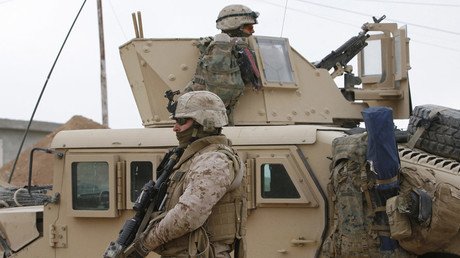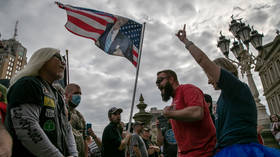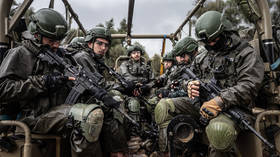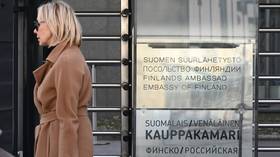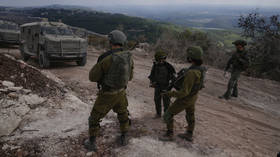‘US advisors in Iraq can do nothing, but kill and destroy’
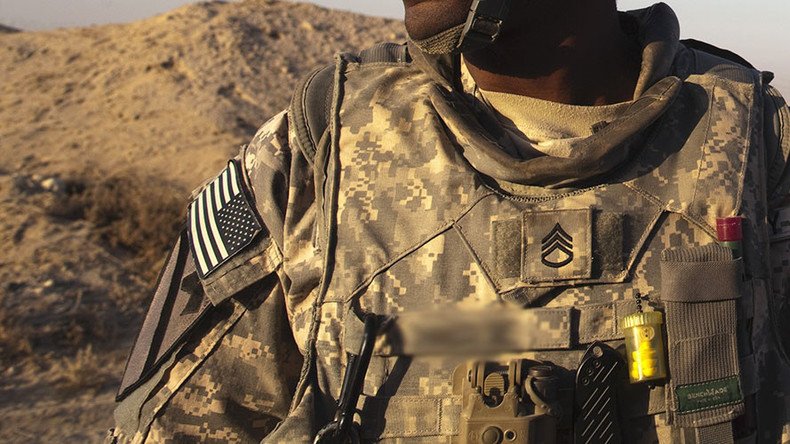
A number of soldiers in the US advise-and-assist mission in Iraq have been described as so-called advisors to the Iraqi military, anti-war activist David Swanson told RT. However, they are trained to do nothing, but kill and destroy, he claims.
ISIS jihadists killed a US Special Forces soldier on Tuesday during an offensive in northern Iraq. Charlie Keating, aged 31, was a Navy Seal, and is said to have been killed inside Kurdish-controlled territory. The trooper was part of a US mission in Iraq providing training and assistance to Iraqi Special Forces, police and air force personnel.
RT: Another American soldier killed in fighting in Iraq. Yet Washington insists it has a strictly non-combat role there. Is that position still tenable?
David Swanson: No, it ever was. These are soldiers trained to do nothing but kill or destroy, and they have been marketed to the US public as so-called ‘advisors’ – as if there are thousands of trained advisors advising the Iraqi military, which is just not what is happening. The US media is still continuing this pretense. It is even pretending that this has happened without a decision. So The Washington Post [yesterday] said that these US non-combat troops were being drawn deeper into combat as if they are inanimate objects somehow being drawn into this against their will. And a CNN talking head said “they are not combat troops, but the combat is coming to them.” It is all this passive voice – is if they are not there at all, the US military has not made the decision to put thousands of more troops in. When one of them gets killed - all of a sudden it is big news. We know that US troops are what matters to the US media. Thousands and thousands of people on both sides in that combat are being killed all the time. They are faceless, nameless…
RT: The killed Navy Seal wasn't on the frontline. Is there a real danger of more American casualties in Iraq?
DS: Yes, there is. But I want to minimize the importance of it in an ongoing war, in which the US has launched tens of thousands of airstrikes; thousands of people are being killed on all sides by violence and by starvation and by other means to obsess over whether there will be a forth, or a fifth US citizen killed. It’s rather disgusting and offensive, I should think, to the people of Iraq. It of course is of great interest to the US media, and it is also of great service to ISIS recruitment, which benefits.
RT: The US is also operating in Syria and said it would send more troops there on a train-and-assist mission, though it denied they'd play a combat role. Is Washington likely to change its tune?
DS: I think it is going to fade away as rapidly as possible, as this predictably goes from bad to worse in terms of US participation and this was predicted years ago. As the US military decided to arm and train and fuel the violence, it was absolutely predictable that US troops would begin to take part, because all that US policy knows to do with such situations – is to continue making them worse with more of what created them in the first place. The US public is paying a very little attention, so these deaths are not going to transform US policy, but the US public is obsessed with an election, in which every single candidate has this same perspective –continue more of what’s created the problem in a first place.
RT: Are we about to see a gradual increase in US troop numbers in Iraq and Syria?
DS: Yes, absolutely, and they will continue for a while to be called advisors and so forth. But at some point their glory and their sacrifice will take precedence over the designation of their so-called non-combat role. The US public will be instructed that it must support the troops, rather than complain about their deaths.
The statements, views and opinions expressed in this column are solely those of the author and do not necessarily represent those of RT.
